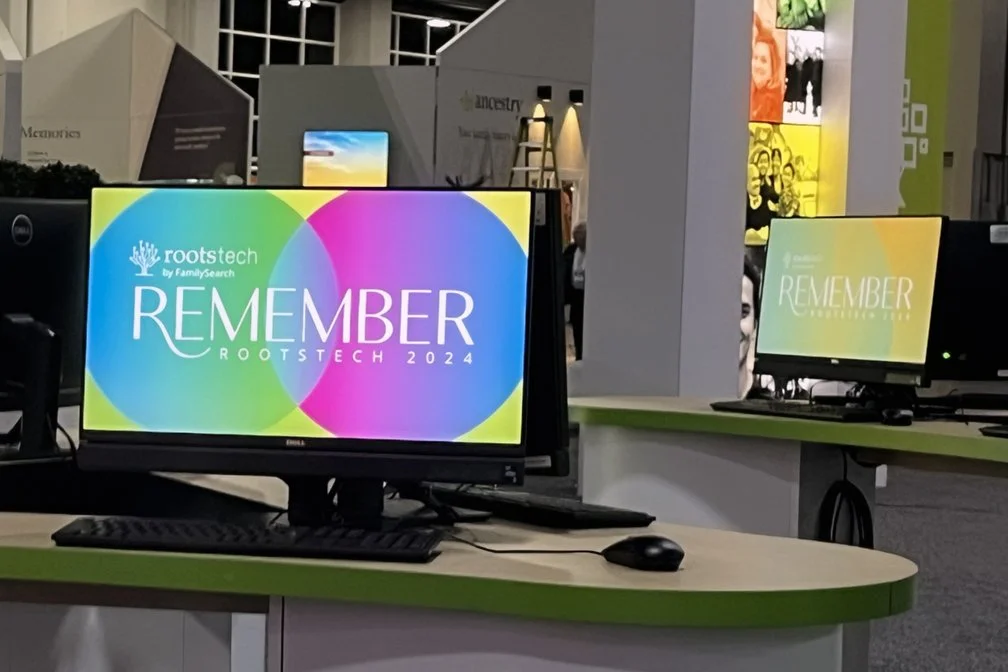Is digital story sharing for you?
Want to record family stories? “There’s an app for that!” Undoubtedly, there is—but will you use it, or will it sit unopened on the last page of your device’s scroll?
If you and your family members are more inclined to take action with tech tools as opposed to pen and paper, here are my top picks for digital story sharing services:
StoryWorth
Who it’s right for:
Connected grandparents, multi-generational families separated by distance
How it works:
With a StoryWorth subscription, users are emailed once a week with prompts to answer a question based on their life experiences. The array of questions is vast and evocative, though users may always choose to answer a question they themselves craft.
Pros:
When a reply is input, answers are emailed to a preset list of people—so, as many family members and friends as you want to designate may receive your stories.
It’s a lot easier to type than it is to write things out longhand (remember those days?!), so users are more likely to get into a rhythm answering questions regularly online than they might otherwise be with an old-fashioned memory-prompt journal.
For individuals who may not have a computer or email address, or for whom typing may be difficult, StoryWorth also offers an audio plan with stories recorded over the phone (some restrictions apply).
Cons:
At the end of the year StoryWorth automatically crafts a black-and-white book of memories based on the subscriber’s responses—and while that’s great in theory (I’m all about preserving memories in a book, after all), there is no room for editing, personalization, or revision.
Also check out:
Two similar apps that are still in beta but look promising are Life Mapping (which “maps” your path through life) and iRememba (leave your legacy via “digital time capsules”).
Family Search Memories App
who it’s right for:
Genealogy fans & family historians
how it works:
Your family historian may already be registered on Family Search, but are they familiar with the Memories features? Users may upload photos, stories, documents, and audio recordings that add depth to the names on their family tree.
The Family Search Memories app displays stories in a gallery view, as shown, or in a list view to make finding specific entries easier.
pros:
The Family Search Memories app allows you to capture priceless family moments through photos and voice recordings on your phone, even when you don't have Internet access.
Family history is truly brought to life—and promises to genuinely capture the next generation’s imagination—when pictures and details exist, not just data and documents.
cons:
While FamilySearch vows to “store your precious moments free forever,” the fact remains that it is a business, and businesses—especially tech businesses—can change (or cease to exist) over time. (Don’t let this app or “the Cloud” be your only means of storing your photos and stories, please.)
Regular Old Email
WHO it’s right for:
The less tech-savvy elders in your family, or those who might prefer to write but are hampered by arthritis or other physical debilitations
how it works:
The art of letter-writing may be dead, but that doesn’t mean long-term correspondence need be, as well. Begin a regular correspondence with a loved one that goes beyond cat memes and dinner dates: Set some ground rules (“let’s explore your past, Mom,” or “I’d love to know more about your college and war years, Dad”) and timeline (at least once per week, perhaps) and start sharing notes.
I was especially inspired by journalist Anderson Cooper, who undertook a year-long extended email conversation with his mother that resulted in a book—and that tapped into, as Cooper said, “not the mundane details, but the things that really matter, her experiences that I didn’t know about or fully understand…”
pros:
No subscription or monetary commitment is necessary. All you need is an email address and access to a computer (available at most local libraries if one is not accessible at home).
It can be easier to delve into difficult or emotional topics when not face-to-face with a loved one. And since correspondents may take some time to review what they have typed, they can be thoughtful about their story sharing.
We have become accustomed to typing, and can pour out our thoughts much more quickly than if we were writing on paper—so conversations may go longer, deeper, more quickly.
cons:
There is a disconnect when reading rather than hearing, and tone or inflection is lost on a screen. Participants must get to know one another’s writing style—and understand that sometimes an actual conversation should ensue to clear up any confusion or hurt feelings.
You may accrue a wonderful catalog of communications through an email correspondence, but the onus is on you to do something to preserve what you have gathered. Don’t let the stories—and the love and understanding that ensues—languish; contact us to help you turn your memories into an heirloom book, or consider simply printing them out (with dates) for the next generation to read and learn from.











